Even though intuitive eating is a pretty simple concept in itself, it still can cause a lot of confusion and speculation. The whole idea behind intuitive eating is to eat what you want (what you’re body’s craving), when you’re hungry. Sounds easy, right? But when you try to start practicing this lifestyle choice (especially after years of dieting), it’s not always that simple.
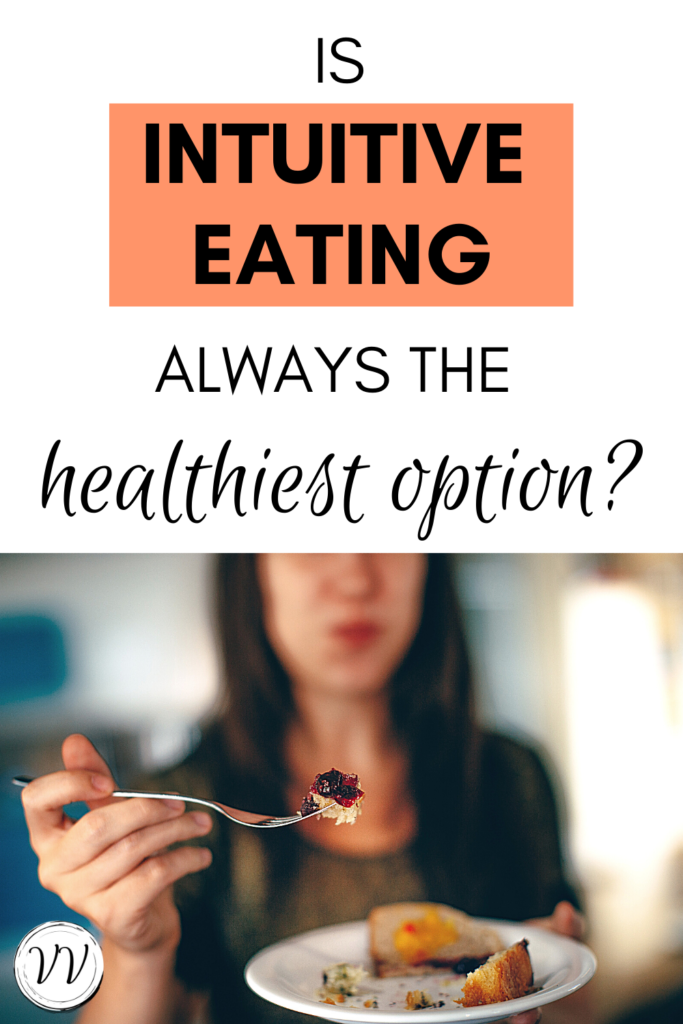
Is Intuitive Eating the Healthiest Option?
I’m a firm believer in intuitive eating and truly think it’s the healthiest option for everyone. Think of it this way: when you were a little kid, did you spend any time at all thinking about food? Wondering when was the next time you were going to eat, what you would (or “should”) eat, or if you had eaten “healthily” enough that day?
No. Of course not.
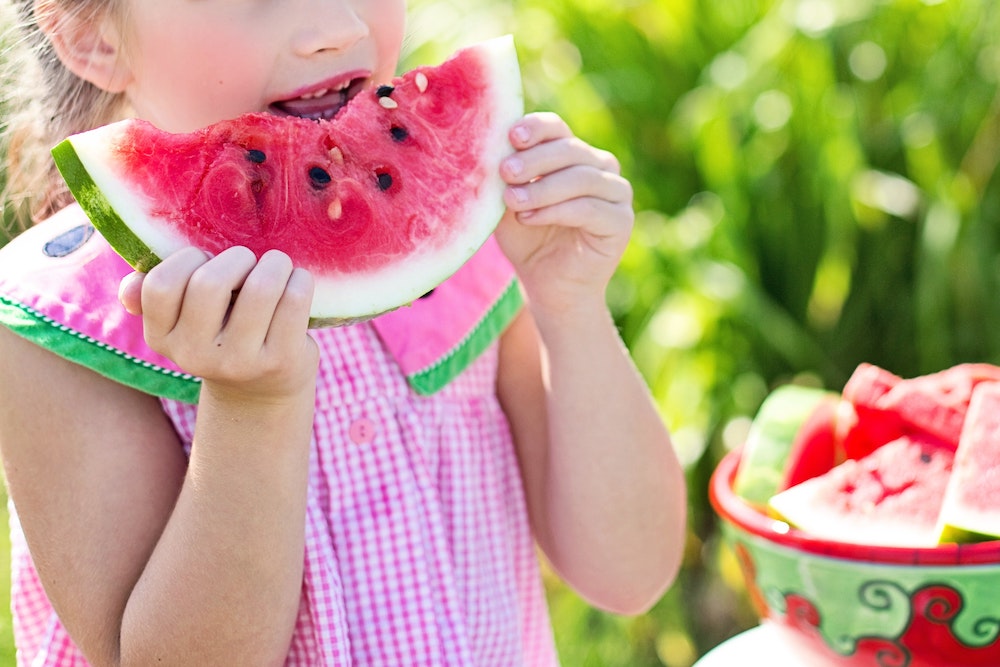
When we were kids, we had other things on our minds besides trying to lose that last 5 pounds or looking good in our skinny jeans. We were focused on more important things like our friends, family, and what Bratz doll we were going to play with next. 😉
All jokes aside, it wasn’t until later into our teenage and adult years that eating became such a hassle and focus for us. Once we started equating our weight or fitness level with our value, was when things went downhill.
My point is this: if we start eating like we did when we were kids, wouldn’t we simply feel better?
If we didn’t spend so much time thinking about and overanalyzing our food choices… Wouldn’t that take a lot of unnecessary stress out of our already stressful lives?
The answer is: yes. One hundred percent, yes.
Now, I’m not saying to completely throw away everything you’ve learned about healthy eating and eat a diet that consists strictly of Sour Punch Straws. It’s still important to nourish our bodies with nutritious and satisfying foods. It’s just not meant to be as restrictive as the diet industry has led us all to believe.
What is Intuitive Eating?
I’ve written a full article going into detail on intuitive eating (you can read it here). But for those of you who just want a quick overview, here you go!
Intuitive eating is defined as “a self-care eating framework, which integrates instinct, emotion, and rational thought.” It was created by two dietitians, Evelyn Tribole and Elyse Resch, in 1995 (source).
There are 10 key principles behind intuitive eating. You can read all 10 on The Original Intuitive Eating Pro’s website, but I wanted to list a few that resonate with me the most.
- Reject the diet mentality
- Honor your health with gentle nutrition
- Challenge the food police (source)
These principles behind intuitive eating resonate with me personally, after years of disordered eating. The idea that you can be healthy AND eat a nutritious diet, while still eating things you love and honoring your hunger, was incredible to me. No matter how knowledgeable someone is about nutrition and health, it can still be easy to fall into the diet trap.
The best way to beat years of having a diet mentality is by working on eating intuitively. Listening to your body, eating when you’re hungry & stopping when you’re satisfied, and eating foods you genuinely enjoy.
Intuitive Eating’s Impact on Weight
One common concern people have when it comes to intuitive eating is if they will gain a bunch of weight. This is a completely understandable fear, since the reason most people start diets or unhealthy eating patterns is the desire to lose weight.
Let me be clear, intuitive eating is not a diet for weight loss and should not be used as one. Some people lose weight with intuitive eating, but some people gain a little weight. It’s all about your body, your natural set point weight, and what you’d been eating before.
For example, if you had been eating a diet of only grapefruit and Saltine crackers before (please don’t do this!), and only consuming 800 calories a day… Then all of a sudden you start fueling your body with the foods you’re actually craving (let’s say 2000 calories a day). You’re probably going to gain some weight.
On the other hand, if you had been yo-yo dieting for a while and your body put on weight because it never knew what to expect anymore. (This is a real thing and happens often with yo-yo dieters. When you go on a diet for a month and aren’t eating enough, then all of a sudden are off the diet and overeating like crazy… Of course, you’re going to gain weight).
So if you’ve been yo-yo dieting for years and then start fueling your body properly with intuitive eating, you may end up losing weight. But you might not.
The main idea behind intuitive eating is accepting your body for what it is, regardless of weight. If you feel healthy, are able to live an active lifestyle, and have lots of energy… Why does it matter if you’re 5 pounds heavier than you were a year ago?
Body Positivity & Self Love
The best thing you can do for yourself is to throw out the scale and accept yourself for who you are, at the weight you’re at. Nobody stays at one consistent weight throughout their life. Weight is meant to fluctuate and can be impacted by how much salt or water you’ve consumed, hormones, your genetic makeup, gender, and age (source).
Focusing on how much you weigh is like riding a roller coaster of highs and lows. If you wake up and lose two pounds, you’ll feel great! Then the next day you gained the two pounds back and feel terrible, like you did something wrong. It’s an emotional roller coaster that nobody wants to be on (and nobody should have to).
There are so many more important things in life besides how much you weigh. Learning to love yourself regardless of your weight (and any other flaws you believe you have) is essential to be really happy.
By going through my intuitive eating journey for the past 5+ years, I’ve learned to love myself for everything that I am (that has nothing to do with how much I weigh). I’ve learned to love my thicker thighs because they’re strong and can lift a lot of weight. I’ve learned to not mind being bloated because 1. who cares? & 2. it always goes away.
I haven’t weighed myself in years and don’t plan to ever start again. The only time I ever see my weight is when I go to the doctor’s office.
And guess what? In the past 5 years of my intuitive eating journey (eating whatever I want), my weight has stayed basically the same. It never fluctuates more than 5 pounds in either direction and always goes back to around the same weight.
Can Intuitive Eating be Unhealthy?

As much as I love intuitive eating (& I love it a lot), I’ll admit that if it’s done incorrectly, it can absolutely be unhealthy.
When I first started practicing intuitive eating, it was really hard to know what I was doing. I would say I was “intuitive eating,” but I still had a diet mentality. In reality, I was still focusing on calories & macros, how “healthy” my foods were, etc.
I also have a Bachelor’s degree in dietetics, so I know a lot about what makes up the foods I’m eating. When you have any sort of knowledge of what the calories, carbohydrates, fat & protein content are in your food… It makes it hard to completely give that up and listen to your body.
It’s still challenging at times. Even though I have a much healthier mindset on food now, my mind can still go back to those restrictive thoughts at times.
Another way that intuitive eating can be unhealthy (also not the correct way to practice intuitive eating) is by using it as an excuse to eat tons of junk food. Believe me, I’ve been there.
It’s not unhealthy by any means to eat higher-calorie, less nutrient-dense foods when your body is truly craving them. If you want a cupcake, eat the dang cupcake! If you want a slice of pizza (or 2, or 3) eat the damn pizza.
The problem is when you’re using intuitive eating as an excuse to only eat those foods 24/7.
If you’re truly listening to your body, you’re not going to be craving sugary/salty “empty calorie” foods for every meal, every day. Our bodies run best when fruits, vegetables, lean protein, etc., are incorporated into our diet. So if you’re only eating “unhealthy foods,” you’re not really listening to your body.
My Initial Struggles with Intuitive Eating
When I first began intuitive eating, I was not practicing it the way it’s meant to be done. I was trying to eat when I was hungry and fuel my body with what it was craving… But it’s hard to know after years of disordered eating (and/or dieting).
At first, I would say I was eating intuitively, but in reality, I was still hyperfocused on eating the “healthiest foods.” I would allow myself to eat less healthy foods, sweets, etc., but not too much. I wouldn’t really eat until I was satisfied and was still honestly being pretty restrictive with food.
A couple of years into my intuitive eating journey, I thought I had it figured out. I had completely accepted eating until satiety/fullness, eating what I wanted, and listening to my body. But at this point, I took it a little too far.
I was eating literally whatever I wanted (or had access to) whenever I felt like it. In a way, this is good and what you should be doing with intuitive eating. But I had grown so accepting of all foods that I would just eat tons of junk food, not many healthier foods, and feel like crap after.
It wasn’t about trying to be less restrictive anymore, it was just me being lazy and not wanting to cook meals for myself or find healthy snacks. I wasn’t actually listening to what my body was craving, I was just eating whatever was the most convenient.
Isn’t Eating Less Restrictively a Part of Intuitive Eating
Yes, absolutely, intuitive eating is all about eating less restrictively. It was just getting to the point where I was never even reaching for nutritious foods that I knew my body needed anymore. I was just eating what was in front of me and not worrying about how I felt afterward.
At times, this is perfectly okay and should be incorporated into intuitive eating. But when it’s all you’re doing for weeks to months at a time, you can start to feel the impact on your health & body.
I was low on energy, didn’t feel like working out, and had just become really lazy with eating. Eating yummy foods like sweets didn’t even excite me that much anymore, because I just ate them all the time
To truly eat intuitively, you have to find a balance between eating “soul foods” that your mind/emotions crave, and eating nutritious foods that your body craves. Once you find a balance that works for you, where you feel energized, healthy, and satisfied with what you’re eating… That’s when the real magic happens.
How to Practice Intuitive Eating the Right Way
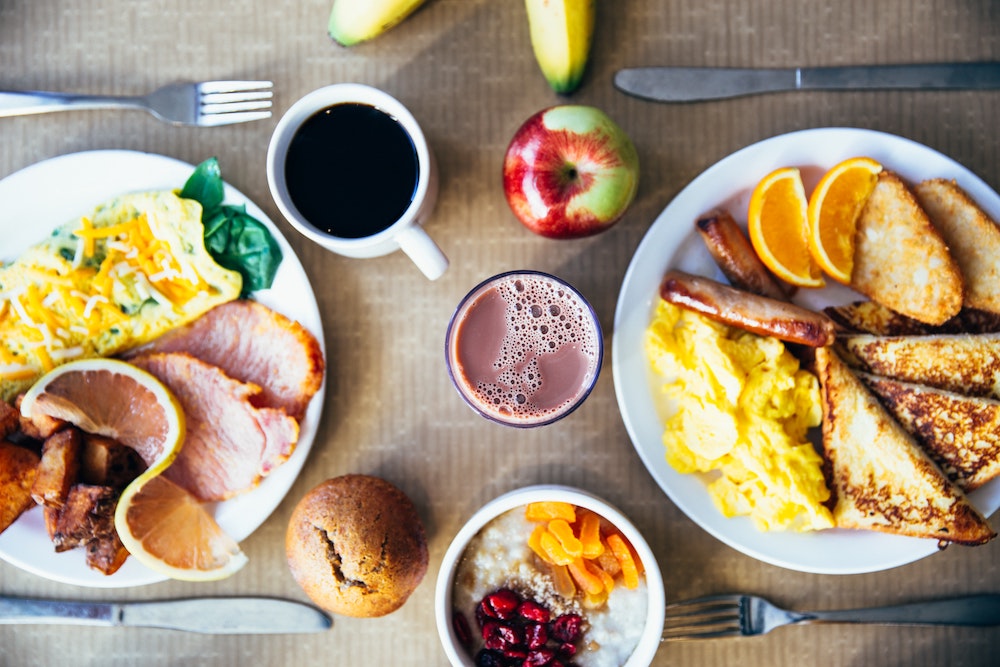
To truly live an intuitive eating lifestyle, you have to give yourself permission to eat what you want. Even the less nutrient-dense foods that we discussed before.
You also can still incorporate a lot of nutrient-dense foods, like salads, fruits/veggies, smoothies, etc., into your diet.
Intuitive eating is a lifestyle choice and there is no restriction that comes along with it. It’s about fueling your body with the foods that make you feel your best. The foods that give you lasting energy throughout the day.
My Current Relationship with Food & Intuitive Eating
Nowadays, I’ve come to a really healthy relationship with food and intuitive eating. I will never go back to any sort of diet mentality or restrictive eating.
I love where I’m at, feel comfortable eating all types of foods, and feel confident with my body & weight. (AKA I don’t worry about my weight at all anymore, not even a little bit).
I’ve gotten past the point of just eating “healthy foods.” And I’ve also gotten past just eating less healthy options. These are both completely normal phases to go through in an intuitive eating journey. So if you ever feel like you’re in one of these phases, you’re not alone.
At this point, I eat “soul foods” whenever my body is craving them. But I also try to fuel my body with fruits, veggies, lean proteins, rice, etc., as often as I can. I know what my body feels best after eating, so I eat those foods the most often.
Once you grow comfortable listening to your body and never restricting certain foods, your body will learn to crave foods that make it feel good. Most of the time when I’m hungry, I crave salads, veggie/rice/meat bowls, smoothies, wraps, etc. AKA foods that make my body feel great & full of energy.
I also crave cookies, doughnuts, chips, etc., at times and always eat those when I crave them. Since I give myself permission to eat whatever I want, I don’t ever end up overeating these foods.
It’s my hope that reading this inspires you to try out an intuitive eating lifestyle if you are stuck in the diet mentality. If you have any questions at all, I’m always here to answer them. 🙂
Comment below with:
- If you’ve ever struggled with restriction when it comes to food, what was one food that was a “fear food” for you?
- Do you feel like you eat intuitively? Or are you more of a dieter?
- What are some less nutrient-dense foods that you crave often?

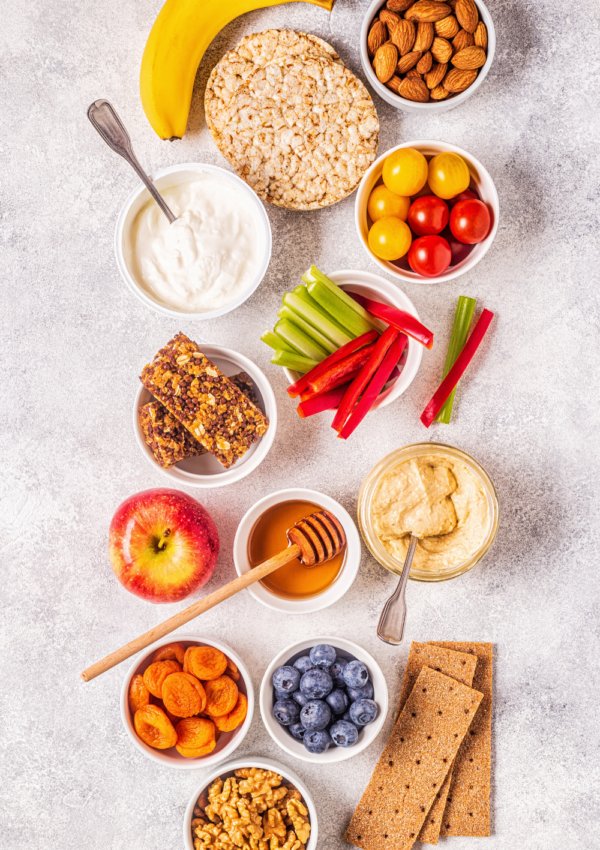
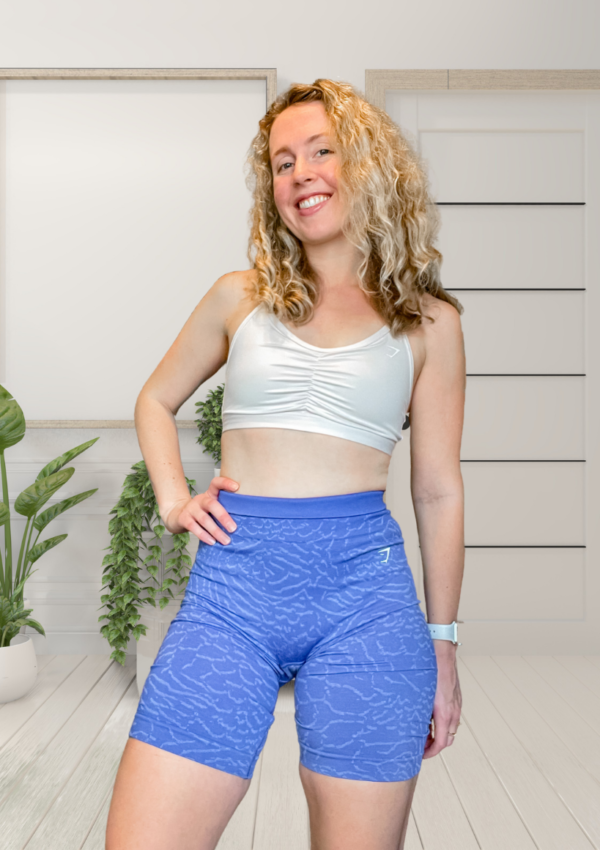
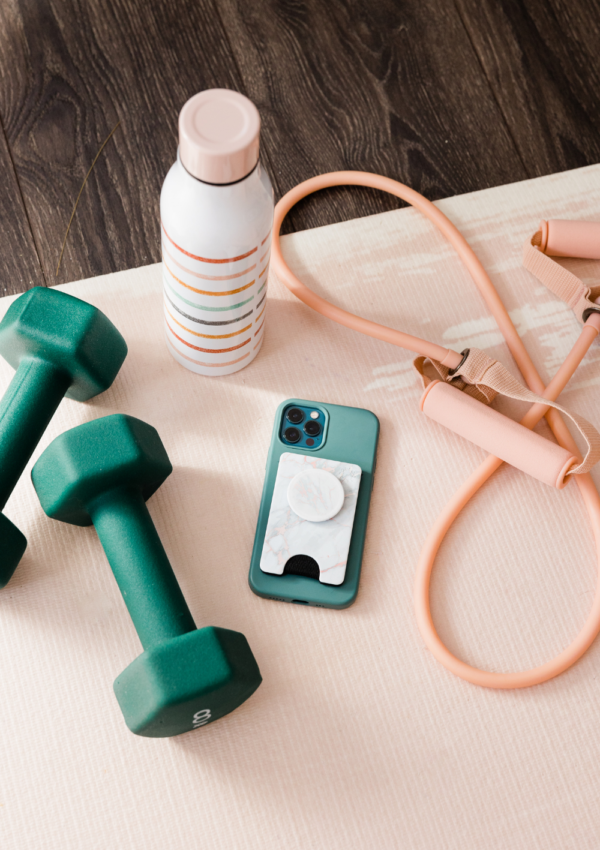
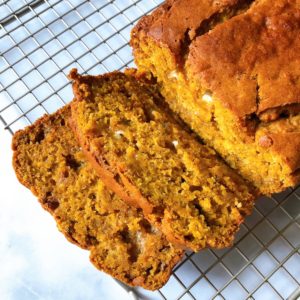


What a great and interesting breakdown on intuitive eating! There is a lot more to go into in than I thought and this is such a great guide.
Thanks so much, Julie! 🙂
I would say that intuitive eating worked for me for a long time until it didn’t. As we age, our bodies need different nutrients and amounts of calories. I wanted to eat lots of carbs but that was not always the best for me. I am trying to find a balance between restrictive eating and intuitive eating
Thanks for your insight, Deborah! That’s a great point that our bodies/needs change as we age. I can only speak from my experience, but I would think that you could still practice intuitive eating throughout life. As our needs change, our hunger/fullness hormones typically adjust to give us what we need. There may be a good reason your body is craving more carbohydrate-rich foods (perhaps increased energy expenditure/harder workouts, etc.). But finding a balance that works for you is obviously the best option. 🙂
This is awesome! Thank you for sharing it. I think I’m an intuitive eater by default. I’ve always been a very lucky person in that I’ve never needed to diet and my mom has always promoted positive body image since I was young. I also unintentionally fast after dinner until about lunchtime the next day. I’m just not hungry during those times- so I really eat when I’m hungry. I also eat what I want, which is good and bad because it’s not always the healthiest of choices.
That’s amazing! I think that a lot of us start out our lives that way and then grow to have a more negative body image in certain periods of life – which leads to dieting and restricting. The fact that your mom raised you to have a positive body image and never feel the need/pressure to diet is incredible. I wish everyone grew up like that / had that mindset.